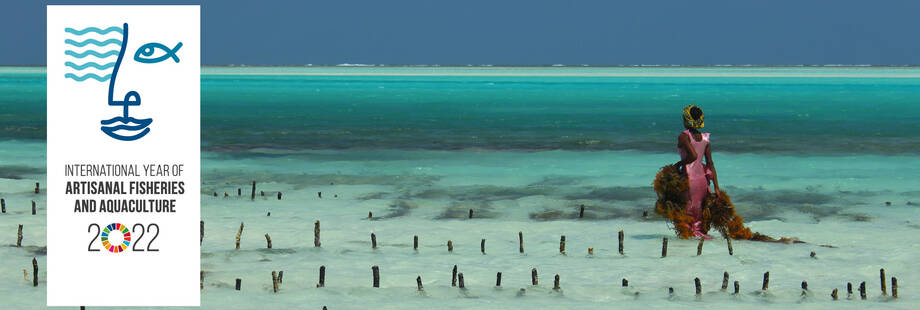Sustainable Small-Scale Fisheries
Currently, 120.4 million people are employed in capture fisheries value chains or engaged in subsistence fishing – and a considerable 93.9 percent of them worked in small-scale fisheries.
Supporting small-scale fishers, fish workers and their communities.
Challenges faced by small-scale fisheries include declining fish stocks; competition from other sectors (e.g. industry, tourism), weak representation, and a lack of voice in resource management. Recent developments related to COVID19 have exacerbated this. However, the sector is reacting and promising practices have emerged, contributing to increased resilience.
To support this sector, FAO led the participatory development of the Voluntary Guidelines for Securing Sustainable Small-Scale Fisheries in the Context of Food Security and Poverty which are grounded in a human-rights-based approach. Going beyond fisheries management, the guidelines also address gender, social development, employment, and climate change. FAO is working with all partners on their implementation. Find out more here.
Key policy messages
- Large industrial fleets dominate fisheries management efforts and political interest. Policies need to refocus on addressing the needs and challenges of small-scale fisheries, which are a critical source of employment, livelihoods, food and nutrition for millions of coastal families and communities.
- The SSF Guidelines, adopted by Member Countries in 2014, provide the global consensus on the principles, good practices and guidance to ensure small-scale fisheries are sustainable and benefit small-scale fishers, fish workers, their communities and society at large. Government ministries and policy makers are now working on their implementation.
- The SSF Guidelines advocate the need for collaboration between government agencies, small-scale fishery organizations, fishing communities and other stakeholders. There is a particular need for improved inter-ministerial collaboration and policy coherence given that small-scale fisheries touch trade, environment, tourism, socio-economic development and gender issues. This is particularly pertinent in times of crisis. Small-scale fishers, fish workers and their communities are currently facing the threat of the COVID-19 pandemic which is affecting the entire value chain and the livelihoods depending on it. Today more than ever, countries should increase their collaboration to share promising practices and opportunities for a prosperous future of the sector.
- Policies should seek to improve the data, definitions and information available on small-scale fisheries, particularly where catches go unreported and trade is informal, in order to better quantify the importance, monetary value and scale of this sector and enhance the analysis of related issues.
- Countries need to address small-scale fishery issues in order to achieve many aspects of the Sustainable Development Goals by 2030, and in particular target 14.b, within Goal number 14 on “Life below Water”, to “provide access for small-scale artisanal fishers to marine resources and markets”. This has become particularly apparent during the COVID-19 pandemic, as it affected small-scale fishers, fish workers and the communities and livelihoods depending on them. The sector has shown its capacity to react and promising practices and opportunities have emerged, which should contribute to increased resilience of the sector.
- The SSF Guidelines recognize the fact that governance improvement goes hand in hand with a better policy environment. FAO secures this by including small-scale fisheries in decision-making processes by building bridges between different stakeholders, establishing and broadening open lines of communication between fishing organizations and national policymakers, and offering a platform to fishers and fish workers. Additionally, these efforts are being supported by comprehensive data and information analysis to ensure that traditional know-how is being preserved and implemented in the shaping of national laws and policies.
Featured resources











